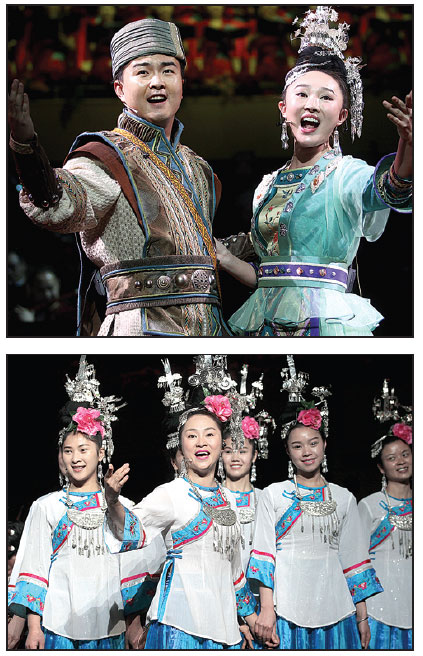Dong folk traditions come alive in Beijing musical
Updated: 2015-01-13 14:35
By Chen Nan(China Daily USA)
|
|||||||||
Xiaohuang village is located in the hilly Congjiang county of southwestern China's Guizhou province, and is some four hours by road from Guiyang, the provincial capital. Xiaohuang is home to the ethnic Dong group, members of which call their abode the "village of songs", owing to the dage (polyphonic folk songs) played there.
Dage are often described as a cappella performed by multiple singers.
More than 60 Xiaohuang residents, aged from 5 to 80, traveled from their village to Beijing on Jan 8, to participate in a musical titled Sing for Love at the National Center for the Performing Arts. The musical was based on a traditional Dong tale of Zhulang and Niangmei, two young lovers who flee their respective homes in the fear of being forced into arranged marriages.
The show also witnessed performances by a 90-member ensemble from the Chinese National Orchestra, an established orchestra known for performing traditional folk music, and the Singing and Dancing Troupe of Qiandongnan Miao and Dong Autonomous Prefecture, from Guizhou province.
The dage performers sang songs that portrayed the Dong people's long history, the natural beauty of their village and their daily lives. Jiang Buxian, a member of the singing and dancing troupe of Qiandongnan, wrote the script for the musical.
He is the artistic director of the troupe and also the director of Dage Art Troupe of the same prefecture. Jiang Buxian, who plays the niu-tuiqin (traditional string instrument), played a solo piece onstage during the show.
According to him, the Dong people do not have their own written language, so they record their history and culture through songs. They sing about farmlands, mountains, rivers and romance. In 2009, dage was recognized as an Intangible Cultural Heritage of Humanity by UNESCO.
"There is an old saying of the Dong people that 'rice nourishes the body and songs nourish the soul'. The tradition of dage is protected and passed down to younger generations. It remains a crucial symbol of Dong identity," says Jiang.
As part of the project initiated by the Chinese National Orchestra, which aims to revive traditional folk music, young composer Chen Si'ang went to Xiaohuang village in October 2012, along with Jiang. Overwhelmed by the sound of dage, Yang was inspired to integrate other Chinese folk music instruments such as erhu and pipa, into Dong music. Sing for Love came out as a result of this effort.
"Although those songs are thousands of years old, I felt connected to the melodies. I hope more young audiences living in big cities can enjoy the art," says Yang.
According to Xi Qiang, director of the Chinese National Orchestra, the orchestra had cooperated with the Singing and Dancing Troupe of Qiandongnan Miao and Dong Autonomous Prefecture for an earlier show, called Niangx Eb Sangb, telling an enchanting story of another major ethnic group in southeastern Guizhou, the Miao people, who share the same passion for liquor and singing as the Dong. The show premiered in Beijing in August 2013.
The 2013 show toured much of China and was also staged in the United States and Europe. It also became an often-shown program at tourist destinations in Gui-zhou province.
"Both traditional Chinese folk music and ethnic group music need to be inherited and renovated. We have been thinking about how to make those art forms enjoyable for today's audiences," says Xi, who also mentions that in 2016, he plans to present a concert, gathering ethnic folk instrument players from across the province.
chennan@chinadaily.com.cn
|
Dong ethnic villagers from Xiaohuang, Guizhou province, perform in the musical Sing for Love at the National Center for the Performing Arts on Thursday in Beijing. Photos Zou Hong / China Daily |
(China Daily USA 01/13/2015 page10)

 Time to become a woman
Time to become a woman
 The world in photos: Jan 5-11
The world in photos: Jan 5-11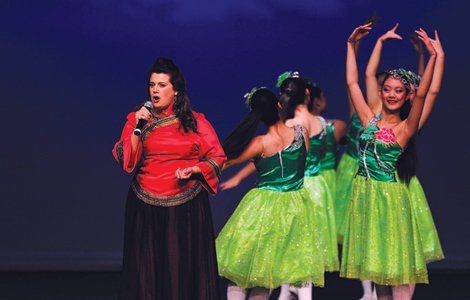
 Belting out a tune for Beijing
Belting out a tune for Beijing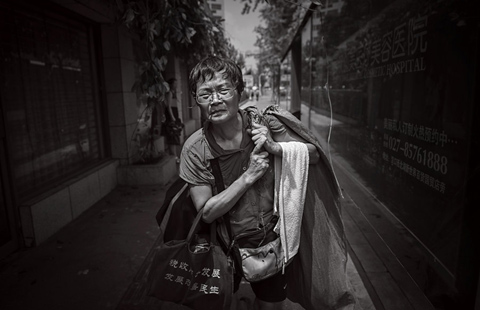
 66-year-old woman risks life, limb to pay off debt
66-year-old woman risks life, limb to pay off debt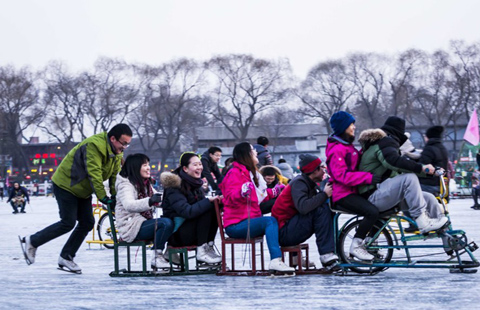
 Tourists heat up Beijing's frozen lake
Tourists heat up Beijing's frozen lake
 72nd Golden Globe Awards
72nd Golden Globe Awards
 Marching in solidarity: Paris 'unity rally' in photos
Marching in solidarity: Paris 'unity rally' in photos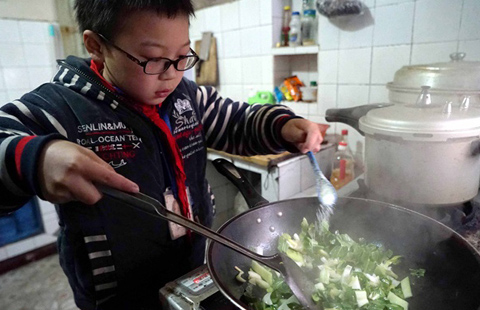
 We learn what is love from the 10-year-old schoolboy
We learn what is love from the 10-year-old schoolboy
Most Viewed
Editor's Picks

|

|

|

|

|
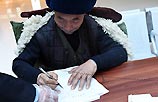
|
Today's Top News
Rail merger threatened by insider trading allegations
Suspect relieved to be home
Li Ka-shing retakes Asia's richest person crown
Uber gets no grief yet in taxi-app ban
Black box of crashed AirAsia jet retrieved
Experts praise reform of Chinese leaders, past and present
Ambitious course set for global airliner market
Washington's Chinatown in flux
US Weekly

|

|
